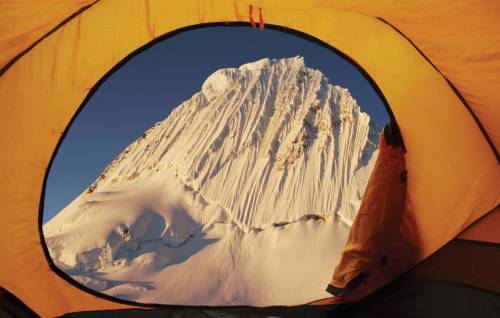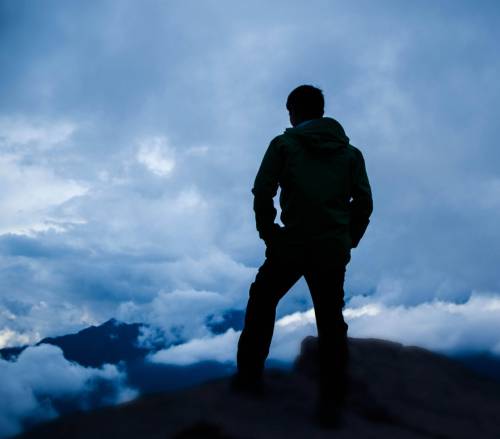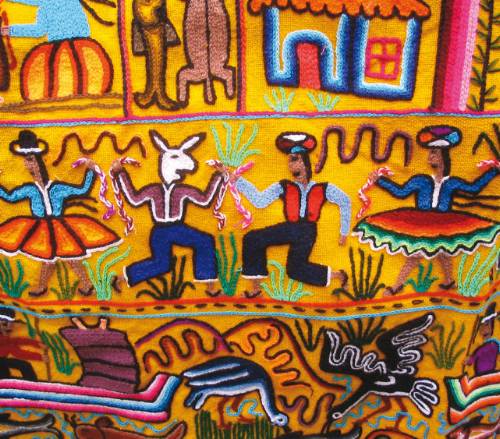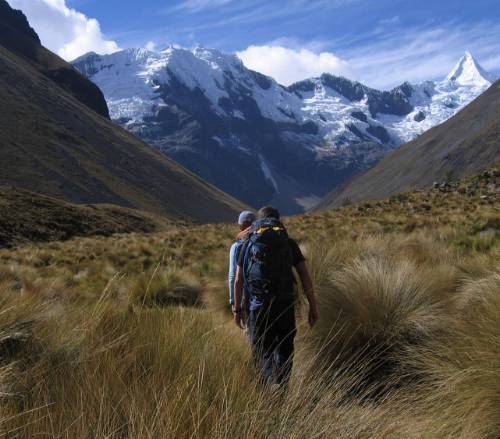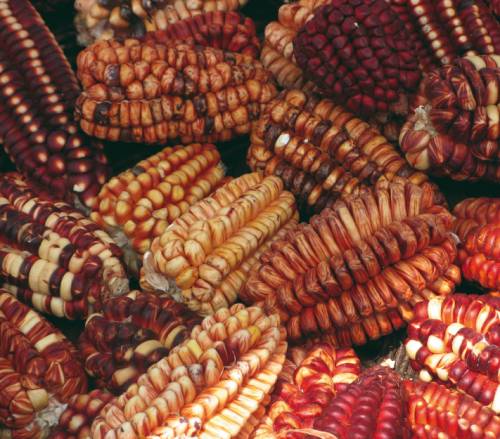Alpamayo Circuit
Alpamayo Circuit
$3860
Tour Overview
Embark on an unforgettable adventure with the Alpamayo Circuit in Peru's breathtaking Cordillera Blanca. This tour offers an immersive trekking experience around the stunning Alpamayo, renowned for its overwhelming beauty. Traverse through towering snow-capped peaks, cascading glaciers, and azure glacial lakes, while enjoying wilderness camping with hearty meals prepared daily. The journey begins in Lima, with a scenic drive to Huaraz, the gateway to the Cordillera Blanca. Acclimatize with day hikes around Huaraz before setting off on a challenging trek through diverse landscapes, including the mesmerizing Laguna Cullicocha and the dramatic Punta Yanayacu Pass. Capture endless photo opportunities and explore the vibrant city of Huaraz, all while being supported by expert guides and comfortable accommodations. This adventure promises a seamless journey with all internal transportation covered, ensuring a memorable exploration of Peru's natural wonders. ...more ...less
Highlights
Itinerary
Day 1 : Arrive Lima
Location: Lima, Miraflores, Lima, Museo de La Nacion, Lima, Larco Herrera Museum, Lima
Accommodation Name: Allpa Hotel or similar
If you’re flying into Lima today you will be met at the airport and transferred to the group hotel, where the remainder of the day is free at leisure for you to rest or start exploring. Our hotel is in the Miraflores area, home to some of Lima’s best galleries, restaurants and shops. Steeped in fascinating history, Lima is South America’s oldest capital. It was in 1535 that the Spanish conquistador Francisco Pizarro overthrew the Inca Empire and moved the capital from Cusco, establishing the new city of Lima. Peru’s busy capital is now a sprawling metropolis that’s blessed with world-class restaurants, brilliant museums and galleries, and a superb combination of Spanish colonial and 19th century European architecture. If you have time to visit a museum we would recommend the Museo de La Nacion or the Larco Herrera Museum.
Overnight Lima in Allpa Hotel or similar. ...more ...less
Day 2 : Drive to Huaraz
Location: Huaraz
Accommodation Name: Hotel Suiza Peruana or similar
Meals Included: Lunch
Today we take a comfortable first class public bus and drive to Huaraz, our gateway to the stunning Cordillera Blanca. It’s a long day’s journey (approx 8 hour drive) but we’ll be treated to some incredible scenery along the way! A light lunch (lunch box) is included during the bus trip but we recommend to take some additional snacks. On arrival in Huaraz we will be transferred to our hotel and meet our guide for the trek. We plan to have our first group briefing before dinner tonight.
Overnight Huaraz in Hotel Suiza Peruana or similar.
Day 3 - 4 : In Huaraz, day hikes
Location: Huaraz, Willcahuaín, Monterrey Hot Springs
Accommodation Name: Hotel Suiza Peruana or similar
We now have two days in Huaraz to explore this stunning region with some day walks - and at an elevation of 3,052 m (10,013 ft), our time spent in Huaraz is crucial to our safe acclimatisation. Huaraz is a scenic town set at the foot of the Cordillera Blanca with views directly up to the highest peak in Peru, Huascarán (6,768 m / 22,205 ft). There is a range of different walking excursions we can make from our base here for a couple of days, and these hikes will be invaluable acclimatisation for our trekking program ahead. As the gateway to the Cordillera Blanca, Huaraz is a bustling tourism hub and also serves as a pick up point for our crew and all supplies and equipment for the trek. On Day 3, we walk to the pre-Inca ruins of Willcahuaín (3,400 m / 11,155 ft) and back to the hotel in a loop walk that will last 4–5 hours, finishing the day with a relaxing soak in the Monterrey hot springs. On Day 4, we make a day trip to Laguna Churup (4,485 m / 14,715 ft), a beautiful glacial lake set at the base of Nevado Churup (5,493 m / 18,022 ft). This is one of the most popular day treks in the Cordillera Blanca and takes around 4-5 hours to complete. The trek to Churup Lake is an excellent training and acclimatisation hike for our upcoming Alpamayo Circuit, and our efforts will be rewarded when we arrive at this stunning turquoise glacial lake.
Overnight Huaraz in Hotel Suiza Peruana or similar.
Day 5 : Drive to Hualcayan via Yungay and Caraz
Location: Huaraz, Yungay, Caraz, Hualcayan
Accommodation Name: campsite
Today we will drive from Huaraz to Hualcayan via Caraz, a trip of around 5 hours including stops. We head north from Huaraz, descending into the vast Callejón de Huaylas valley. We visit the memorial for Yungay, a town that was completely destroyed by the giant avalanche of ice, rock and mud that came down from the flanks of Huascarán during the 1970 earthquake. From here we stop to visit the busy local market in Caraz, before driving along an unpaved road up into the mountains to our first night’s campsite at Hualcayan village (2,900 m / 9,514 ft).
Overnight at campsite.
Day 6 : Trek to Wishcash
Location: Callejón de Huaylas
Accommodation Name: campsite
Today we set off on a steady, continuous climb, swiftly gaining altitude as we zigzag up to our next camp at Wishcash (4,300 m / 14,108 ft), perched high up the mountainside. From here we have terrific views west across the Callejón de Huaylas to the Cordillera Negra, and at night we can see the twinkling lights of the villages high up in the Cordillera Negra.
Overnight at campsite.
Day 7 : Trek to Ruinapampa via Laguna Cullicocha and the Osoruri Pass
Location: Laguna Cullicocha, Osoruri Pass, Vientunan Pass, Quebrada los Cedros Valley, Ruinapampa
Accommodation Name: campsite
Today will be a tough day (8-9 hours’ trekking) and our pre trek training will be put to good use as we climb on a generally good zigzagging path to the crystal blue Laguna Cullicocha (4,650 m / 15,256 ft). From here we enjoy a magnificent panorama with the summits of Santa Cruz (6,259 m / 20,535 ft)—Santa Cruz Norte and Santa Cruz Chico - rising steeply at the opposite end of the lake. As we continue our ascent towards our first mountain pass, Osoruri (4,850 m / 15,912 ft; joint-highest point on our trek), our views of the surrounding lakes and peaks get better and better. We descend and climb again to the Vientunan Pass (4,770 m / 15,650 ft) before embarking on a long switch-back descent to the depths of the Quebrada los Cedros valley. We pass the terraced fields surrounding the thatch-roofed crofter’s hamlet of Alpamayo and soon after reach our camp at Ruinapampa (4,050 m / 13,287 ft).
Overnight at campsite.
Day 8 : Trek to Cruze Alpamayo Pass
Location: Cedros Valley, Alpamayo, Laguna Jancarurish, Cruze Alpamayo
Accommodation Name: campsite
This morning we will trek for a few hours on almost flat terrain up the beautiful Cedros valley. On the way we’ll see some ruined structures and ancient standing stones. Eventually, the spectacular pyramid form of Alpamayo (5,947 m / 19,515 ft) comes into view to the southeast. We then climb up the nearby moraine overlooking the stunning glacial lake of Laguna Jancarurish for close-up views of the Alpamayo and Jancarurish (5,601 m / 18,376 ft) peaks. Alternatively, we may venture to Alpamayo basecamp. Tonight we will camp at Cruze Alpamayo (4,150 m / 13,615 ft).
Overnight at campsite.
Day 9 : To Safuna via Cara Cara Pass and Mesapata Pass
Location: Los Cedros River, Cara Cara Pass, Alpamayo, Jancarurish, Quitaraju, Laguna Jancarurish, Mesapata Pass, Safuna, Quebrada Tayapampa
Accommodation Name: campsite
Today we have a trekking day of around 7 hours, first crossing the Los Cedros River and climb steadily to our next pass, the sometimes-windy Cara Cara (4830 m / 15,846 ft). From here, there are great views back to the peaks of Alpamayo, Jancarurish, Quitaraju (6,036 m / 19,803 ft) and the Laguna Jancarurish. We descend to a plateau and spend two hours on an easy traverse to a second, lower pass (Mesapata; 4,500m / 14,764 ft), before dropping to our camp at Safuna in the Quebrada Tayapampa (4,200 m / 13,780 ft).
Overnight at campsite.
Day 10 : Trek to Jancapampa via Pacajirca Pass
Location: Cordillera Blanca, Pucajirca, Laguna Sactaycocha, Quebrada Jancapampa
Accommodation Name: campsite
Again, today’s trek will be around 7 hours long, and we start by crossing the Huillca plateau, one of few locations in the Cordillera Blanca where alpacas are found in abundance. We ascend a narrow valley to a rocky pass, Pucajirca (4,600 m / 15,092 ft), from which - weather permitting - we are treated to awesome views of the snowcapped peak of Pucajirca Norte (6,046 m / 19,836 ft). From here we have a short descent on steep scree, but it soon levels out as we continue down a shrub-filled valley flanked by quenual (polylepis) forest. We pass the beautiful tree-fringed Laguna Sactaycocha and continue our descent through rich vegetation to the broad Quebrada Jancapampa valley. We camp near the head of the valley (3,600 m / 11,811 ft); directly behind camp we have views of a huge hanging glacier and waterfalls cascading down a vast horseshoe of cliffs hundreds of metres high. A lot of farming families live across the valley, and it is our first opportunity since Huallapa to meet the friendly local people and the curious, happy children who call the valley home.
Overnight at campsite.
Day 11 : Trek to Laguna Huecrococha via Tupatupa Pass
Location: Tupatupa Pass, Laguna Huecrococha
Accommodation Name: campsite
Today we’ll trek past adobe house villages and cultivated fields, climbing first gradually, and then more steeply, to the Tupatupa Pass (4,400 m / 14,436 ft), from where we’ll have views of the big peaks of the Pucajirca/Rinrijirca massif to the west. Today we will also pass through the continental divide; all rivers running west head for the Pacific and those running east eventually reach the Atlantic, via the Amazon. Our trail descends via a small mountain lake (tarn) into the broad Tuctubamba valley that we follow downstream before making a short half-hour climb to our campsite beside Laguna Huecrococha (3,950 m / 12,959 ft).
Overnight at campsite.
Day 12 : Trek to Tuctubamba via Alto de Pacaraju Pass
Location: Laguna Huecrococha, Alto de Pacaraju Pass, Taulliraju, Quebrada Huaripampa, Tuctubamba
Accommodation Name: campsite
We flank the north shore of Laguna Huecrococha then begin a long, gentle traverse of the steep, forested Huecrococha valley. At the valley head, the ascent steepens and zigzags to the Alto de Pacaraju Pass (4,650 m / 15,256 ft). At certain times of the year the lupins that cover the hillsides are in flower, and the scent can be intoxicating. From the pass we will have magnificent views of many peaks including the jagged Taulliraju (5,830 m / 19,127 ft), which towers over the pass. A rocky descent brings us to the open Quebrada Huaripampa valley and our camp at Tuctubamba (3,950 m / 12,959 ft).
Overnight at campsite.
Day 13 : Rest day at Tuctubamba, with an optional day walk to the beautiful Punta Union Pass
Location: Punta Union Pass, Santa Cruz Valley, Pucajirca Massif, Taulliraju, Artesonraju
Accommodation Name: campsite
We spend another night at the same camp to make the most of our incredible mountain surroundings. Today we have the option to take a day walk (5 hour round trip) to the beautiful Punta Union pass (4,760 m / 15,617 ft), from where we look directly down the Santa Cruz valley (the route of the famous Santa Cruz trek), across to the awesome sight of the Pucajirca massif. Directly above us looms the intimidating west face of Taulliraju and, with good weather, we might also see Artesonraju (6,025 m / 19,767 ft) to the west. Alternatively, you may prefer to spend the day resting around camp.
Overnight at campsite.
Day 14 : Trek to Molino Pampa via Colcabamba village
Location: Huaripampa Valley, Colcabamba, Chacraraju, Challhua, Molino Pampa
Accommodation Name: campsite
Today we follow the main Santa Cruz trail down the Huaripampa valley. After 3 hours, we pass through the intensive farmlands of the villages of Huaripampa and then Colcabamba. As we approach Huaripampa, Chacraraju’s east summit rises sharply before us to the west. Today we pass many farmhouses and small settlements, and many curious children will come running out to see us. We then climb steadily for another hour to the village of Challhua, before traversing easily to our campsite at Molino Pampa in the Quebrada Keshu (3,600 m / 11,811 ft).
Overnight at campsite.
Day 15 : Trek to Avalancha
Location: Keshu Valley, Avalancha, Contrahierbas
Accommodation Name: campsite
Today’s trek is not long, but it offers dramatic scenery and swift elevation gain. We begin with a steady ascent of the Keshu valley, passing through some beautiful ancient quenual (polylepis) forest until we reach a mass of moraine enclosing a glacial lake. At this point the climb steepens as we head up the valley’s north side on a zigzag path to the plateau where our high campsite, Avalancha (4,650 m / 15,256 ft) is located. Across the valley from our spectacular campsite there are almost continual avalanches from the glaciers of Contrahierbas (6,037 m / 19,806 ft) crashing into the lake below. After lunch at our camp we’ll spend an exciting afternoon avalanche watching!
Overnight at campsite.
Day 16 : Trek to Ulta Ravine via Punta Yanayacu Pass, drive to Huaraz
Location: Punta Yanayacu Pass, Huascarán, Quebrada Ulta, Huaraz
Accommodation Name: Hotel Suiza Peruana or similar
This morning we ascend for a few hours to a high narrow ledge and on to a dramatic knife-edge mountain pass. This is the last and most spectacular pass of our trek, Punta Yanayacu (4,850 m / 15,912 ft), where Andean Condors nest and are sometimes spotted in flight. From here we also have close views of the dramatic snowcapped peaks of Chopicalqui and Contahierbas. We then have a short zigzag descent into the Cancahua valley below. As we trek past glacial lakes, we are surrounded by towering snowcapped peaks including Contahierbas, the pyramidal Nevado Ulta to the south, and the highest - Huascarán (6,768 m / 22,205 ft) - to the northwest. We complete our trek with a long descent through quenual forest to the beautiful Quebrada Ulta valley, where our private bus will be waiting to take us back to Huaraz. The drive will take around 2 hours. This evening we will enjoy a farewell meal with our fellow trekkers.
Overnight Huaraz in Hotel Suiza Peruana or similar.
Day 17 : Drive to Lima
Location: Lima, Miraflores
Accommodation Name: Allpa Hotel or similar
Meals Included: Lunch
After breakfast we will be transferred to the bus station and take a first class public bus back to Lima. A light lunch (lunch box) is included but we recommend to take some additional snacks. On arrival in Lima we will be picked up and drive to our hotel in Miraflores for our last night in Peru. Tonight is the last chance for souvenir shopping at the markets in Miraflores before our flight home tomorrow.
Overnight Lima in Allpa Hotel or similar.
Day 18 : In Lima, trip concludes
Location: Lima
Meals Included: Breakfast
After breakfast, our trip concludes. If you are flying home today, you will be transferred to the airport in time for your departure.
What's Included
-
Accommodation
6 nights hotel -
Airport transfers
Airport transfers are included if arriving on Day 1 and departing on Day 18.
-
Transportation
Travel includes airport transfers, a first-class public bus from Lima to Huaraz for groups under 10, and private transportation for larger groups. All internal transportation is covered.
-
Expert bilingual guide
An expert bilingual guide is included in the tour.
-
Group medical kit
A group medical kit is provided during the trek.
-
Use of a gear pack
Use of a gear pack including a sleeping bag, fibre-filled jacket, and sleeping mat is included.
-
Group camping equipment
Group camping equipment is provided for the trek.
-
Pack animals or porters
Pack animals or porters are provided on the trek to carry personal gear.
-
Portable altitude chamber
A portable altitude chamber is carried on the trek.
What's Not Included
-
International Flights
International flights are not included in the tour package.
-
Airport taxes
Airport taxes are not included in the tour package.
-
Cost of laundry and alcoholic beverages
The cost of laundry and alcoholic beverages is not included.
-
Medical treatment
Medical treatment is not included in the tour package.
-
Excess baggage costs
Excess baggage costs are not covered.
-
Travel Insurance
Travel insurance is not included and is the responsibility of the traveler.
-
Visas
Visas are not included and must be arranged by the traveler.
Accommodation
Enjoy 6 nights in comfortable hotels, mostly 3-star with some 4-star options, and experience wilderness camping in quality two-person tents during the trek. Our team ensures your comfort with a dining tent, cooking tent, and where appropriate, a toilet tent.
What You Carry
In your daypack you will need to carry extra warm clothing (depending on the altitude, location and weather), a rainjacket, water bottle, camera gear, valuables and personal items such as sunscreen, lip-eze etc. Porters or mules carry all group gear and your trek pack. As of December 2018, single-use plastic bottles and any other single-use plastics (bags, cups, straws, etc) are prohibited in the Historic Sanctuary of Machu Picchu, on the Inca Trail and all other protected natural areas in Peru. This regulation was established by the Ministry of Environment, following the Sustainable Tourism Regulation which aims to conserve these protected natural areas. Please ensure to bring your reusable water bottle on all our Peru trips. Water refill stations have been installed in areas near Machu Picchu and other national parks. Your guide will brief you where you can refill your water bottles with drinking water. ...more ...less
Grading
This trip is graded moderate to challenging and is suitable for fit and healthy people. Prior trekking is not necessary, although you would be expected to be comfortable in the outdoors and enjoy camping for successive days. These adventures involve trekking for up to 6 - 8 hours a day at a steady pace and may include longer days up to 10 hours. These trips may spend successive days at altitudes not generally exceeding 5,500m and the actual treks are usually between 10 and 15 days in duration. You will need a good level of fitness and be in good health.
* Suggested preparation: 45 minutes of aerobic type exercise, three to five times a week for the three months leading up to your trip. Hill walking with a pack in variable weather conditions is also recommended. To prepare for a walking holiday we recommend you take every opportunity to walk up and down stairs and/or hills, for leg strengthening and aerobic fitness. Please remember the fitter you are the more you will enjoy your holiday.
...more ...less
What You Carry
In your daypack you will need to carry extra warm clothing (depending on the altitude, location and weather), a rainjacket, water bottle, camera gear, valuables and personal items such as sunscreen, lip-eze etc. Porters or mules carry all group gear and your trek pack.
As of December 2018, single-use plastic bottles and any other single-use plastics (bags, cups, straws, etc) are prohibited in the Historic Sanctuary of Machu Picchu, on the Inca Trail and all other protected natural areas in Peru. This regulation was established by the Ministry of Environment, following the Sustainable Tourism Regulation which aims to conserve these protected natural areas. Please ensure to bring your reusable water bottle on all our Peru trips. Water refill stations have been installed in areas near Machu Picchu and other national parks. Your guide will brief you where you can refill your water bottles with drinking water.
...more ...less
Mode of Transport
Travel includes airport transfers, a first-class public bus from Lima to Huaraz for groups under 10, and private transportation for larger groups. All internal transportation is covered, ensuring a seamless journey throughout the tour.
Check out our Q&As
-
What kind of accommodation can I expect during the Alpamayo Circuit tour?
During the Alpamayo Circuit tour, you will stay in hotels and lodges that are mostly 3-star accommodations, with some categorized as 4 stars. In smaller towns and villages, hotel options may be more basic. During the trekking section, you will enjoy a fully supported camping experience in quality two-person tents with plenty of personal space and storage for your luggage. ...more ...less
-
What meals are included in the Alpamayo Circuit tour?
The tour includes 17 breakfasts, 16 lunches, and 12 dinners. During the trek, you will enjoy three hearty meals a day prepared by the support team.
-
What kind of transportation is provided during the tour?
Transportation includes airport transfers, a first-class public bus from Lima to Huaraz for groups under 10, and private transportation for larger groups. All internal transportation is covered to ensure a seamless journey throughout the tour.
-
What should I carry in my daypack during the trek?
In your daypack, you should carry extra warm clothing, a rain jacket, a water bottle, camera gear, valuables, and personal items such as sunscreen and lip balm. Porters or mules will carry all group gear and your trek pack.
-
What is the difficulty level of the Alpamayo Circuit trek?
The Alpamayo Circuit trek is graded as moderate to challenging and is suitable for fit and healthy people. It involves trekking for up to 6-8 hours a day at a steady pace, with some days extending up to 10 hours. The trek may spend successive days at altitudes not generally exceeding 5,500 meters. ...more ...less
-
What kind of support is available during the trek?
The trek is fully supported with pack animals or porters to carry personal gear, a group medical kit, and a portable altitude chamber. An expert bilingual guide will accompany the group, and all group camping equipment is provided.
-
Are there any specific regulations regarding plastic use during the tour?
Yes, single-use plastic bottles and other single-use plastics are prohibited in the Historic Sanctuary of Machu Picchu, on the Inca Trail, and all other protected natural areas in Peru. You should bring a reusable water bottle, and refill stations are available in areas near Machu Picchu and other national parks.
-
Who will be my travelling companions on the tour?
We have offices on three continents which means your travelling companions will be just that – international and wonderfully eclectic. Part of small group travel means that although travellers come from various locations and backgrounds, you will be travelling with like-minded companions who, like you, are keen to share the experience and forge lifelong friendships.
-
What about environmental impact?
We believe that adventure travel revolves around establishing a strong relationship with the people and environments in which we operate. Our responsible travel policies have been carefully developed to ensure that we minimise the impact of our presence and help to protect the regions we visit while contributing positively to the local community.
-
What should I pack?
Your pre-departure documents include a detailed packing list with items that you need to bring. While most of the equipment for daily activities is included in your tour cost, some items like helmets and hiking boots are best brought from home. The pre-departure documents also include information on layering and recommended brands for various items to ensure you are fully prepared for your trip.
-
Do you operate a “single share” option and how does it work?
Yes. World Expeditions does not require single travellers to pay a surcharge for travelling alone on the vast majority of our trips. Our holidays are primarily on a twin share basis, so if you are joining the group as a solo traveller, we will match you with someone of your own gender. The choice is yours however; if you prefer not to share, we do offer single supplements for private occupancy.
-
Are tips included in my trip price?
Tips are not included in the tour cost. Tipping is a personal thing, do not worry about how much, or when, to tip. Tipping guidelines are provided for certain destinations in our pre departure information upon booking, however the best advice will be provided by your tour leader.
-
Am I suited to small-group travel?
We recognise that many of our travellers have not been on a ‘group trip’ before. Yet what our departures provide is both structure and flexibility, allowing you plenty of freedom within the framework of the itinerary. You’ll find that with our maximum group size at 16, you’ll travel in a minimal impact style with a great group of like-minded travellers.
-
Can you advise which vaccinations are recommended?
While our pre-departure kit provides information on vaccinations, we suggest that you consult your doctor, local government inoculation centre or a travel medical specialist in order to get the most current advice regarding vaccination requirements.
Reviews from travellers on this tour
1 Select your preferred date
Saturday - Tuesday
May 17, 2025 - Jun 03, 2025Saturday - Tuesday
Jun 21, 2025 - Jul 08, 2025Saturday - Tuesday
Jul 19, 2025 - Aug 05, 2025Saturday - Tuesday
Aug 30, 2025 - Sep 16, 2025Saturday - Tuesday
May 16, 2026 - Jun 02, 2026Saturday - Tuesday
Jun 20, 2026 - Jul 07, 2026Saturday - Tuesday
Jul 18, 2026 - Aug 04, 2026Saturday - Tuesday
Aug 29, 2026 - Sep 15, 2026Book with Confidence
-
Transfer as credit to Future Tours
World Expeditions allows you to transfer existing payments to a future tour to avoid cancellation fees if you can't travel and inform world expeditions, 70 days before departure.
-
Low Deposit
World Expeditions requires a minimum deposit of 400 GBP per person or the full booking value, whichever is less, with the final balance not due until 70 days before departure.
-
Cancellation Policy
We don't charge a cancellation fee, here is a summary of world expeditions charges.
Up to 70 days before tour starts: Forfeit 100% of deposit.
At 69 days before tour starts: Forfeit 50% of booking price.
At 35 days before tour starts: Forfeit 100% of booking price.
Alpamayo Circuit
18 Days Starting and ending in Lima, Peru
Visiting: Lima, Miraflores, Lima, Museo de La Nacion, Lima, Larco Herrera Museum, Lima, Huaraz, Willcahuaín, Monterrey Hot Springs, Yungay, Caraz, Hualcayan, Callejón de Huaylas, Laguna Cullicocha, Osoruri Pass, Vientunan Pass, Quebrada los Cedros Valley, Ruinapampa, Cedros Valley, Alpamayo, Laguna Jancarurish, Cruze Alpamayo, Los Cedros River, Cara Cara Pass, Jancarurish, Quitaraju, Mesapata Pass, Safuna, Quebrada Tayapampa, Cordillera Blanca, Pucajirca, Laguna Sactaycocha, Quebrada Jancapampa, Tupatupa Pass, Laguna Huecrococha, Alto de Pacaraju Pass, Taulliraju, Quebrada Huaripampa, Tuctubamba, Punta Union Pass, Santa Cruz Valley, Pucajirca Massif, Artesonraju, Huaripampa Valley, Colcabamba, Chacraraju, Challhua, Molino Pampa, Keshu Valley, Avalancha, Contrahierbas, Punta Yanayacu Pass, Huascarán, Quebrada Ulta, Miraflores ...more ...less
Tour operator:
Tour code:
HPL
Guide Type:
Fully Guided
Group size:
4 - 16
Tour operated in:
EnglishTrip Styles:
Adventure Tours, Camping, Small Group, Walking Hiking and Trekking

